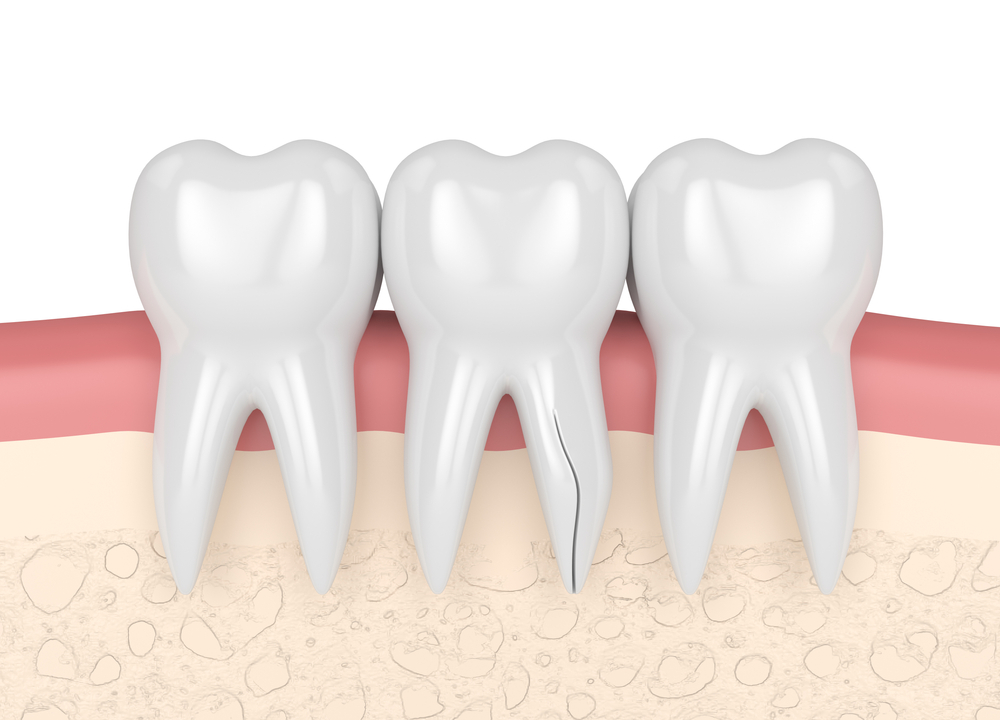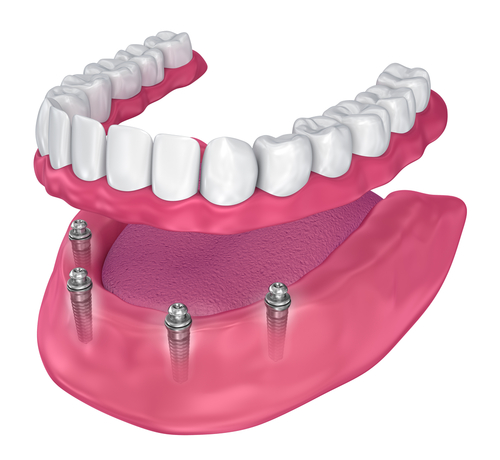
Six Useful Tips for Wisdom Tooth Extraction Recovery
May 4, 2021
Signs You May Have a Fractured Tooth
July 28, 2021Can Dentures Be Stabilized With Dental Implants?
Dentures are the perfect solution for improving the aesthetics of your smile. They are a cost-effective option as you seek to restore teeth in pretty bad shape—however, loose denture results in myriads of complications. What is even worse for your dental health is a denture that moves around. They impede talking, limit the choice of foods you can partake in, and lead to sore spots and a great deal of pain.
Implants are a good option for providing stability for your dentures. Besides, these can improve your facial appearance and increase your self-confidence, especially in front of your peers.
What Is a Dental Implant?
A dental implant is a metal frame that is surgically positioned to replace the root of your tooth. Titanium screws are used as an interface between your jaw and the denture, thus providing you with much-needed support, especially where the root has been eroded. In so doing, the implant becomes the retention bridge for dentures that do not fit well.

Types of Dental Implants
There are two broad types of dental implants that can be used to retain your dentures. These are:
- Endosteal Implants
The endosteal implants are titanium screws surgically placed in the jawline where you have a missing tooth.
- Subperiosteal Implants
The subperiosteal implants are installed on top of the jawbone and just beneath the gum tissue in the general area of the affected tooth. These are preferred when you have bone loss in the jaw or when the integrity of the same is questionable. Osseointegration is done to ensure that the jawbone’s strength is achieved over time.
How Dental Implant Surgery Is Performed
How the dental implant is installed to retain the denture depends on the type of implant and the integrity of the jawbone. During the scheduled date for the procedure, a comprehensive dental exam is carried out, including dental X-rays and 3D imaging of both the teeth and the jawbone. Your dentist will then review these to ascertain that you are viable for the procedure. A treatment plan is then tailored to your specific case keeping in mind the condition of the jaw area and the tooth on which the denture has been installed.
During the procedure, the dental surgeon makes an incision in the gum area and exposes the underlying jawbone. Holes are then drilled where the implant’s frames are to be installed. This will serve as the root for the denture you are to get to ensure that it stays secure.
The growth of the jawbone follows the installation of the implant’s posts. The latter grows and unites with the metal posts. Based on your initial dental examination, an abutment can be installed where the denture’s crown is expected to attach.
Benefits of Implant-Supported Dentures
- The final product is just as comfortable and functions like natural teeth.
- The implant-supported dentures are easy to maintain over time.
- These supported dentures do not rest on your gum and can therefore be re-adjusted to maintain a good fit.
Dental implants are right for you if:
- You have missing teeth.
- Your jawbone has reached maturity.
- You have a good bone structure to secure the implant in place.
- Your oral tissue is healthy, and there has not been significant altering of their integrity.
Implant-supported dentures restore your smile and provide you the same functionality you would have gotten from conventional dentures. Their most significant advantage is that these are more secure and dependable, ensuring you go through your daily life with confidence.




